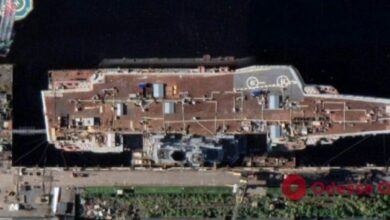
Russian corporate sites are not among the best in Europe. Analysts believe that this indicates the underdevelopment of the Russian business itself – companies do not believe that a high-quality website will help attract foreign investors.
Not a single Russian corporate site has reached the top 100 European pages of large companies. These are the results of a study that the Swedish company Halvarsson & Halvarsson (H & H) is conducting for the eleventh time. The site of the Italian Telecom Italia is recognized as the most convenient, receiving 89 points out of 100 possible. The Spanish oil company Repsol ranked second, with a score of 88.75 points, and Italy’s third bank, UniCredit, with a score of 87.75.
The company’s specialists evaluate more than 500 corporate sites located in European domain zones, from which they then select the 165 most convenient pages. As stated in the company’s comments on the report, H & H views corporate sites as a way to communicate with the world. Among the experts, evaluating sites for H & H, business journalists, analysts, investors.
The main indicators for the formation of the rating are the provision of financial information, taking into account the availability of general information about the corporation and corporate governance, information for the press, interactivity of the site.
A year ago, as in 2005, the corporate page of the Dutch logistics company TNT was recognized as the best, this year being only the fourth. The failure of French companies also attracts attention – for example, only the aerospace website EADS is among the top 40 pages in Europe.
Like last year, LUKoil remains the best Russian player. The company received only 52.5 points out of 100, which allowed it to be only in 105-106th place – next to the French corporation Total. Norilsk Nickel was ranked 130th with 48.25 points, Gazprom was ranked 145th – only 43 points were in the company’s assets. In addition, the list also included Surgutneftegaz and Sberbank, which took 156th and 157th places, respectively. Last year, however, the figures were not much higher: LUKoil was then at the 102nd position.
The remaining companies a year ago also occupied the lower positions of the rating.
The main disadvantage of Russian corporate sites is the lack of promptness: for example, the latest news on the Surgutneftegaz website dates back to July 4, 2007. Updates on the English version of the LUKoil website are also delayed (the company, it is true, claims that they are “working” to eliminate this shortcoming).
According to the head of the research department of H & H Mark Eriksson, such low places of Russian sites are explained by the fact that large companies simply don’t pay enough attention to them: “. Indirectly, the words of Eriksson are confirmed: for example, the press service of the same “LUKoil” said that for them the release of the Halvarsson rating was news. “We will read about this with you,” the company said.
However, representatives of large companies do not express dissatisfaction. The press service of LUKoil expressed satisfaction that the company was ahead of competitors in the H & H rating. The press service of Norilsk Nickel also noted the company’s second place in Russia. At the same time, the head of the company’s press service, Igor Petrov, noted that the company’s profile influences the place of Norilsk Nickel in the rating, in particular.
“Still, for banks or for telecommunication companies, the site is of greater importance – these companies are consumer-oriented,” notes Petrov.
However, according to Petrov, the company will develop its interactive face. So, according to him, in early 2008, Norilsk Nickel plans to launch a new site design. “In addition, we are active in the blogosphere, where other large companies are not so active,” he adds.
“It is worth noting that such ratings are specific – they place different demands on Russian corporate websites than the companies themselves,” says Finam analyst Leonid Delitsyn.
So, according to him, the ability to attract a foreign investor through the site, which the head of the Swedish project is talking about, is not relevant for Russian players.
“On the contrary, the Russians themselves are now buying assets abroad,” recalls Delitsyn.
However, Delitsyn is convinced that over time, the pages of Russian companies on the Internet will improve. “While the Internet has not yet become such an everyday tool, as in Europe and in the USA, therefore, companies use other methods of communication with the public,” the expert concludes.



